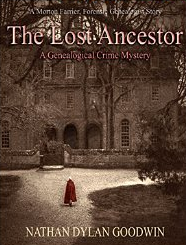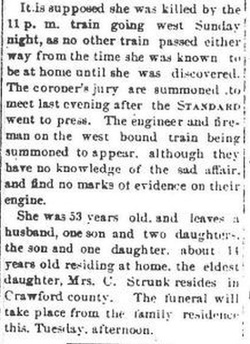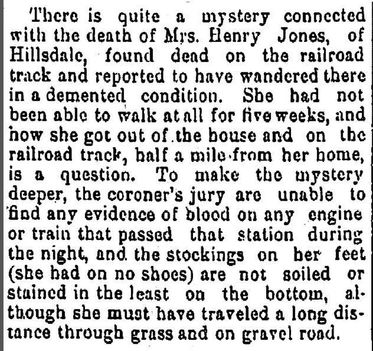Such a book was The Lost Ancestor, by Nathan Dylan Goodwin.
What impressed me the most, and what I found myself thinking about for days afterward, is how events and conversations and emotions that occurred in 1911 that were not recorded led to events that were recorded. In Ray's telling the professional genealogist about his grandmother Edith and her twin sister Mary, we have no idea that there was any sort of rift between them. Edith goes for an interview to be hired as a housemaid at Blackfriars Manor, but Mary is hired instead. Why? It's the conversations and emotions that lead to events, that Morton eventually tracks down.
In thinking of "reading between the lines" in my own ancestors' lives, I can think of two good examples. My mother Mary Elizabeth Stoelt was born on 2 August 1931, to Arnold and Bessie (Randall) Stoelt. Records give the facts of her birth, and of Bessie's death five months later, on 20 December 1931. Bessie's mother, Claudia Grace (Thompson) Randall died just two months earlier, on 27 October 1931. And curiously, in the obituary for Claudia Thompson Randall that was published in the Manistee (MI) News-Advocate on 28 October 1931, there is no mention of her daughter or granddaughter. The only survivors listed were her husband Herbert and son Ray.
Why?
It's not in the records, but in oral tradition, told to me by my mother's stepmother, Ervilla Stoelt, who heard it from her husband Arnold, who was there at the time. Apparently shortly before Claudia died, Herbert came to visit Arnold and Bessie. There was a huge argument, and Herbert shouted epithets at his pregnant daughter Bessie and stormed out of the house. Although Herbert died in 1946, when my mother was 15 years old, he never made an attempt to see or visit his her.
The other example is a lot farther back in time, and involves emotions, conversations and events that I can only guess at. In June 1880 my great-great grandmother Rhoda Prosser Jones was living in Hillsdale, Michigan with her second husband, Henry Jones, and her two children.
Just as Morton Farrier solved his mystery using just the records he found, without having any idea of the conversations, emotions and events, if I look for the records, eventually I will find the truth of what happened.




 RSS Feed
RSS Feed